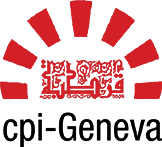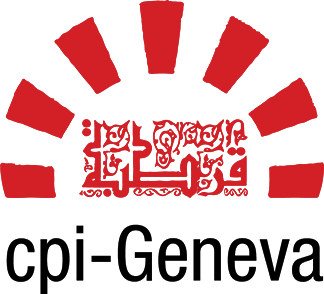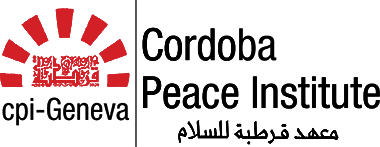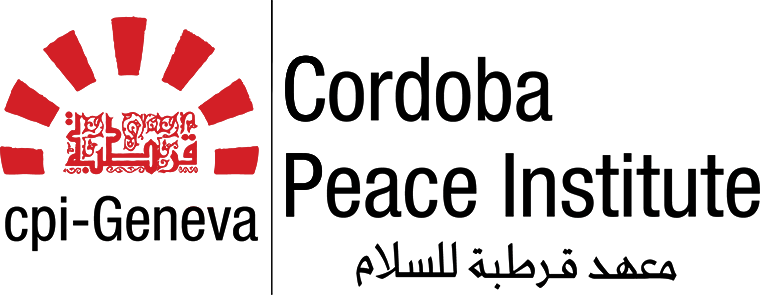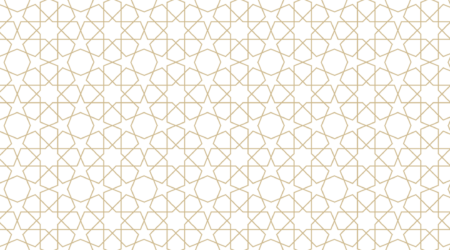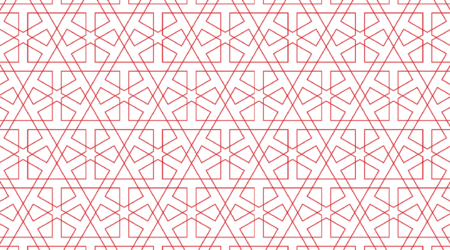The Cordoba Update 6/2016

| In line with the programmes and projects funded by partners of the Cordoba Foundation of Geneva, updates and information are included under the following themes: |
|
ISLAMIST-SECULAR RELATIONS / RELATIONS ENTRE SÉCULIERS ET ISLAMISTES
Morocco, 09.03.16: Communication Resumes between Former Detainees and Human Rights Defenders
On 9 March, at the Moroccan League for the Defence of Human Rights (LMDDH), a meeting took place between a number of actors from different ideological backgrounds, including Ahmed El Haijj, president of the Moroccan Association for Human Rights (AMDH) and leftist radical; Abdelmalek Zaaza, a lawyer with close links to the ruling Justice and Development Party (PJD), which has a religious reference; and a number of members of the coordination for Salafi prisoners – themselves former detainees.
The meeting between these diverse actors aimed to review recent developments in the Moroccan prison system that affect current Salafi detainees, however it was also an opportunity for these former Salafi detainees and militant human rights activists to improve relations. In the context of increasing security concerns, and the alleged activity of certain former detainees in coordinating groups travelling to Syria and Iraq for combat, the meeting is a positive sign of engagement between Salafi’s and others, in the interest of improving the human rights record of the nation. El Haijj stated that, « we will defend human rights in general, without prejudice. »
According to one source, a mixed working group on the issue of Moroccan prisons may be created on the basis of this first meeting. Observers believe that this initiative would be an encouraging sign of cooperation between important actors in the country. This event is the latest in a number of demonstrated attempts of former Salafi detainees to assume an active and participatory role in Moroccan politics, and civil society (see The Cordoba Update, 03-16 November 2015).
Links for more information:
http://telquel.ma/2016/03/09/contacts-danciens-detenus-salafistes
TRANSITION AND POLITICAL PARTICIPATION / TRANSITION ET PARTICIPATION POLITIQUE
Libya, 22.03.16: Faiz al-Sarraj’s Government of National Accord moving to Tripoli « within days »
The political deadlock persists in Libya with Faiz al-Sarraj’s Government of National Accord (GNA) unable to move from Tunis to Tripoli, despite al-Sarraj’s assertion that his cabinet will move to Tripoli « within days », and rumours of ongoing preparations to host the GNA offices at the Arab Maghreb facilities, near the United Nations (UN) offices in Janzour district of Tripoli.
Politically, a session of the House of Representatives (HoR) in Tobruk scheduled for 21 March did not take place for lack of quorum. The pro-Khalifa Hafter bloc continues to block attempts to endorse the GNA, even though United Nations Special Mission in Libya (UNSMIL) seems to consider the endorsement by both rival parliaments – General National Council (GNC) and HoR, as well as the amendment of the Constitutional Declaration – mere formalities that it is willing to overlook. Nevertheless, the European Union (EU) is in the process of imposing sanctions on the HoR president Aguila Salah, the GNC’s president, Nouri Bousehmin, and Prime Minister Khalifa al-Guouil. The 8th meeting of the Libya Neighbouring Countries Conference took place on 22 March in Tunis. In addition to Libya’s neighbours, representatives from the African Union, EU, and UN Special Representative of the Secretary-General attended. They lent support to Sarraj’s GNA, and reiterated their opposition to military intervention in Libya without a request of the GNA, once it assumes office in Tripoli. Observers of Libyan affairs noticed a significant change in the position of Libya’s Neighbouring Countries Conference regarding military intervention this time, in that their opposition is conditioned by a request from the GNA only.
Meanwhile, a consultative meeting of the Constitution Drafting Assembly (CDA) kicked off on 17 March, in Oman. Despite the upbeat public relations campaign around the meeting, around 20 members (15 resigned and 6 boycotted) of the 60-member CDA did not attend the meeting. The reality is that, even if all these obstacles are overcome, two issues remain. First, Hafter’s role and future in the political system; and second, how al-Sarraj’s GNA will move to Tripoli without provoking violence in Tripoli.
Links for more information:
Report of UN Panel of Experts on Libya, 9 Mar. 2016, (Summary pages 2-3, Recommendations pages 60-63)
http://www.un.org/ga/search/view_doc.asp?symbol=S/2016/209
http://unsmil.unmissions.org/Default.aspx?tabid=3543
http://www.marsad.ly/en/2016/03/19/al-sarraj-discusses-the-gnas-3-phase-plan/
https://www.youtube.com/watch?v=UNLYtoxGDqk
http://www.marsad.ly/en/2016/03/15/final-report-of-the-panel-of-experts-on-libya
http://www.theguardian.com/world/2016/mar/11/france-pushes-for-eu-sanctions
http://europeansanctions.com/category/libya/
http://www.aps.dz/monde/39038
IRAQ, 18.03.16: PROTESTS AGAINST IRAQI GOVERNMENT CORRUPTION IN BAGHDAD AND THE DIFFICULTIES OF POLITICAL PARTICIPATION
The influential Iraqi cleric, Muqtada al-Sadr, organised large-scale protests against government corruption on the fringes of the Baghdad fortified ‘Green Zone »; a vast restricted area in central Baghdad, and the location of key state institutions and foreign embassies. Despite a government ban, estimated thousands of Iraqis picketed the Green Zone gates, demanding an end to nepotism and patronage in state institutions. Al-Sadr has called for Iraqi Prime Minister, Haider al-Abadi, to replace the country’s cabinet ministers with non-political technocrats, to offset rampant government corruption. In a very recent scandal, the parliamentary auditing committee estimated that approximately 130 billion USD has disappeared from Iraq’s Defence Ministry budget.
Al-Abadi is currently working on such reforms in the government, but faces numerous obstacles in the weakened and divided political system. On 20 March, Iraq marked 13 years since the US-led invasion that ultimately deposed the long-time autocrat Saddam Hussein, since when the issue of political identity has been of increasing importance. The violent change in leadership resulted in a new political system based on federalism and multi-confessional representation, whereby government appointments and military commands, among others, must reflect the social components of the Iraqi people — Arab Shi’a and Sunna, Kurds, Christians, Turkmens and others. Until now, the government has often been paralysed by its own system of representation, and its limited ability to establish control beyond Baghdad.
Indeed, the realities of Iraqi government impotence and corruption are well-known. Anti-corruption demonstrations have been ongoing since the middle of 2015, represented by a wide cross-section of Iraqi society. However, al-Sadr’s involvement in the latest protest has raised the concerns of some who fear the growing influence of religious, Islamist forces in Iraq. Al-Sadr’s political trend is currently represented by al-Ahrar bloc, which commands 34 of 328 parliamentary seats, but many observers are more concerned with the increasing presence and power of Iraqi « hashd », popular mobilisation groups, or militias, which also espouse a religious identity. The hashd have been empowered by long years of political instability and violent conflict in Iraq – and armed alternatively by external actors, or the central government itself. According to the Boston Globe, well-established groups like Asaib Ahl al-Haq, the Hezbollah Brigades, Badr, and the Peace Brigades, have proven links to political parties in the Iraqi government.
These are just two issues of government reform in Iraq, reflecting major barriers to effective political representation and participation for the majority of Iraqis. In the context of the ongoing conflict with violent groups including the so-called Islamic State, and others, these reforms may contribute to re-establishing confidence in the central government.
Links for more information:
http://www.aljazeera.net/news/arabic/2016/3/18/
http://www.middleeasteye.net/news/thousands-march-baghdads-green-zone
http://rudaw.net/english/middleeast/iraq/16032016
http://www.al-monitor.com/pulse/originals/2016/03/iraq-public-officials
http://english.alarabiya.net/en/perspective/profiles/2016/03/21/Moqtada-Sadr-Iraq
https://www.bostonglobe.com/news/world/2016/03/21/fears-grow-iraqi-government
Morocco, 09.03.16: The Justice and Development Party under Continued Criticism
Morocco’s ruling Justice and Development Party (PJD) has come under a steady stream of criticism in recent months, from various sectors of Moroccan society. The past fortnight has seen a continuation of this trend.
The leaders of the Moroccan political opposition: Ilyass El Omari of the Authenticity and Modernity Party (PAM) and Driss Lachgar of the Socialist Union of Popular Forces (USFP), have argued that the PJD has not succeeded in implementing the 2011 Constitution, which was drafted in response to the social pressures of the 2011 uprisings in Tunisia, Egypt and others.
One key criticism, made by El Omari, is that the PJD has not facilitated a participatory approach to national politics. Furthermore, the president of the Chamber of Councillors, and member of PAM, Hakim Benchemach, alleged that the Moroccan Prime Minister, Abdelilah Benkirane, has not respected the constitution by failing to accord opposition parties greater influence over national policies. Lachgar also opined that the PJD has used parliament as a platform for violent discourse against members of the opposition, and further criticised its slow legislative action and presumed failure to establish targets in combatting corruption.
The PJD has also faced mounting criticism and opposition from civil society actors, including ongoing action by teacher trainees and diverse unionists. Following an incident where A. Benkirane was verbally abused by an audience of teacher trainees at a press conference, on 7 March, protests against the Moroccan government have picked up pace. According to the organisers of the national coordination of protests, the number of participating teachers and trainees is in the thousands nation-wide. The PJD has held several meetings with the leaders of the national coordination since these protests began more than five months ago, but so far their proposals have been rejected.
In addition to the teacher trainees, five Moroccan unions, including the Moroccan Union for Work (UMT); the Moroccan Confederation for Work (CDT) and the Moroccan Federation of Work (FDT); the General Union for Moroccan Workers (UGTM) and the National Syndicate for Higher Education (SNES), have announced a three-month programme for action against the ruling government. According to Abderrahmane Azzouzi, Secretary-General of FDT, « the Moroccan government does not want to establish a social dialogue and does not listen to our proposals for a number of issues, notably retirement reforms, and salary increases for employees. » On 16 March, the Secretary-General of the UMT, Miloudi Moukharik, stated that the syndicates may use recourse to a sanction on the government, if the PJD maintains its current position. The tension between the central government and the unions has been ongoing since October 2015, when A. Benkirane made a televised announcement of reforms to retirement expected in 2016.
The ongoing, public disagreement between the Moroccan government, its opposition and its civil society actors, has been a source of tension for months. Some observers note that the PJD has been slow to respond to the gradually expanding expressions of discontent, especially within the urban centres of Casablanca and Rabat. The absence of a concerted reaction by the PJD will be detrimental to its political tenure, particularly as a party that came to power on a populist mandate, supported by socially and economically disenfranchised Moroccans.
Links for more information:
http://telquel.ma/2016/03/11/el-omari-gouvernement-na-pas-mis-en-oeuvre-constitution
http://telquel.ma/2016/03/08/pour-enseignants-stagiaires-benkirane-provoque-contestations
http://www.lakome2.com/societe/12424.html
http://telquel.ma/2016/03/07/les-syndicats-annoncent-trois-mois-protestation
http://telquel.ma/2016/03/16/les-syndicats-annoncent-marche-nationale-3-avril
Niger, 21.03.16: Le président voit son mandat renouvelé et l’opposition fait grise mine
Le président Mahamadou Youssoufou, a été réélu au second tour de l’élection présidentielle du Niger. Organisé le 20 mars, ce second tour aura vu le président sortant comme seul candidat. Le leader de l’opposition, Hama Amadou, ancien président de l’Assemblée nationale, arrivé deuxième au premier tour, détenu sur fond d’une affaire de trafic de bébés, s’est désisté au dernier moment. Un étrange arrangement trouvé en dernière minute lui a permis d’être évacué en France pour des soins. Ses partisans, déboussolés, avaient d’abord appelé au boycott, puis à la participation, pour finir par maintenir le mot d’ordre de boycott. Du coup, le seul enjeu du scrutin s’est réduit au taux de participation.
Selon l’opposition, ce dernier n’a pas dépassé 11%, alors que les partisans du pouvoir parlent de plus de 60%. La CENI, très contestée par l’opposition, n’a pas encore communiqué les résultats officiels.
Suscitant des brins d’inquiétude de certains acteurs internationaux (ONU, UA et UE, entre autres), les appels à la retenue et au respect du jeu démocratique ont été lancés à l’adresse des acteurs de la scène politique nigérienne.
Liens pour plus d’informations :
http://www.rfi.fr/afrique/20160321-niger-querelle-chiffres-autour-participation
http://www.rfi.fr/afrique/20160321-presidentielle-le-niger-retient-son-souffle
http://www.rfi.fr/afrique/20160319-presidentielle-niger-suspense-inconnue
http://news.aniamey.com/h/69853.html
http://www.tamtaminfo.com/second-tour-de-presidentielle-sous-la-menace-jihadiste
Egypt, 17.03.16: New judicial crackdown on NGOs
A judicial committee overseeing a five-year-old investigation into several rights activists accused of receiving illegal funding for their NGOs from foreign sources ordered the freezing of assets of four Egyptian human rights activists and their families. Hossam Bahgat, who founded the Egyptian Initiative for Personnel Rights (EIPR) in 2004, and Gamal Eid, who founded the Arabic Network for Human Rights Information (ANHRI) also in 2004, were among the four whose assets were frozen today. U.S. Secretary of State, John Kerry, said, he is « deeply concerned by the deterioration in the human rights situation in Egypt in recent weeks and months, including the reported decision this week by the Egyptian government to reopen an investigation of Egyptian non-governmental organizations (NGOs) documenting human rights abuses,’ adding that « restrictions on the space for civil society activity will produce neither stability nor security. » He urges the Egyptian Government to « work with civic groups to ease restrictions on association and expression and to take action to allow these and other human rights NGOs to operate freely. » Egyptian Foreign Minister Sameh Shoukry rejected criticism by his US counterpart, saying that such matters were the responsibility of the Egyptian government, which was working to implement the constitution. Egyptian MPs accused Kerry of interfering in the country’s internal affairs. Meanwhile, Egypt’s Social Solidarity Ministry announced the opening of a foreign NGO surveillance unit for observing and assessing the work of foreign non-governmental organizations operating in Egypt. The ministry has banned a total of 521 NGOs, the report stated, adding that their funds were worth LE496,310 million. On the other hand, the Egyptian passport has dropped on a scale of global visa restrictions in the last decade, making it more difficult for holders of the green passport to travel overseas. Egypt is now ranked 88 out of 104, on par with the central African country of Chad in terms of visa privileges. In 2006, it ranked 74 out of 104 on the worldwide visa restrictions index.
Links for more information:
https://freedomhouse.org/article/egypt-freezes-assets-human-rights-activists
http://www.madamasr.com/news/2011-ngo-case-reopened
http://www.egyptindependent.com//news/court-mulls-freezing-activists-funds
http://english.ahram.org.eg/NewsContent/1/64/193225/Egypt/Politics-/Egypt-court-freezes
http://www.egyptindependent.com/news/social-solidarity-ministry-opens-foreign-ngo-surveillance
http://english.ahram.org.eg/NewsContent/1/64/193321/Egypt/Politics-/US-concerned
http://www.madamasr.com/news/global-visa-index-more-restrictions-egyptians-traveling
http://english.ahram.org.eg/NewsContent/1/64/193450/Egypt/Politics-/Egypt-MPs-call
http://english.ahram.org.eg/NewsContent/1/64/193357/Egypt/Politics-/Egypts-foreign-minister
RELATIONS BETWEEN COMMUNITIES OF DIFFERENT ETHNIC, CULTURAL AND RELIGIOUS AFFILIATIONS /
RELATIONS ENTRE COMMUNAUTÉS DE DIFFÉRENTES AFFILIATIONS ETHNIQUES, CULTURELLES ET RELIGIEUSES
Union Européenne (UE) – Turquie, 21.03.16 : Quelle applicabilité de l’accord entre l’UE et la Turquie et quel avenir pour les réfugiés ?
Le 18 mars dernier un accord a finalement été trouvé entre l’UE et la Turquie. Si Angela Merkel notamment s’est félicitée de ce dernier, son applicabilité et sa conformité vis-à-vis du droit international sont remises en question. En effet, selon le Haut-Commissariat de l’ONU pour les Réfugiés (HCR), le mécanisme de « sous-traitance » de la crise migratoire à la Turquie ne garantit pas la priorité du « droit d’asile », une primauté régie par le droit international.
Dans les faits, cet accord entré en vigueur le 20 mars dernier est basé sur un système d’ « échange » de réfugiés. En effet, pour tout Syrien rapatrié en Turquie, un Syrien sera évacué par corridor humanitaire vers un des pays de l’UE. Cet échange est plafonné pour le moment à 72’000 personnes, car certains pays comme la Hongrie, refuse d’en accueillir plus. Il est à préciser que les 50’000 personnes toujours bloquées en Grèce à cause de la fermeture de la route des Balkans, ainsi que les réfugiés déjà présents dans les pays de l’UE, et les 12’000 réfugiés présents dans le camp d’Idomeni à la frontière macédonienne, sont exclues de l’accord.
La mise en œuvre de l’accord semble compliquée, d’autant plus que les migrants continuent à affluer en nombre sur les côtes grecques. Ces derniers vont devoir attendre l’arrivée du personnel qualifié de l’Union Européenne, sensé encadrer le processus de rapatriement, avant de savoir quel sort leur sera réservé. Selon la Commission européenne, 4000 agents vont être mobilisés dont « un millier de personnel de sécurité et militaire « et environ 1500 policiers grecs et européens. La Turquie s’est quant à elle engagée à prendre « toutes les mesures nécessaires pour empêcher la création de nouvelles routes maritimes et terrestres entre de la Turquie vers l’UE» (communiqué de presse de la Commission européenne,19 mars 2016, Bruxelles). Les tensions sont de plus en plus vives, notamment en Grèce, où afflux toujours de nombreux réfugiés. En effet, certains réfugiés se sentent délaissés aux détriments d’autres, car non éligible au statut de « demandeurs d’asile » et des heurts éclatent entre différentes communautés. Selon le New York Times en effet, les réfugiés afghans ont notamment été « re-classifiés » migrants économiques par certains pays européens. Des violences commises à l’encontre de migrants par la police macédonienne ont également été rapportées par certaines organisations.
Quel bilan tirer à ce jour de cet accord ? Il semblerait que personne ne soit vraiment satisfait de l’accord. L’UE a dû délaisser en partie son rôle de défenseurs des libertés et droits individuels, notamment en raison d’une fragmentation de plus en plus accrue au sein de ses membres, et perd en indépendance. Les citoyens Turques d’une manière général se disent déçus de l’attitude de l’Europe. Le gouvernement Turque semble quant à lui avoir réussi à tirer son épingle du jeu (reprise des négociations vis-à-vis de l’adhésion à l’UE, facilitation des visa pour les ressortissants Turques et des millions d’euros négociés), même si les dirigeants européens ont rappelé à la Turquie, à l’occasion de la signature de l’accord, qu’elle devait respecter « les normes les plus élevées qui soient en ce qui concerne la démocratie, l’Etat de droit et le respect des libertés fondamentales, dont la liberté d’expression ». Une modeste victoire pour les valeurs européennes.
Liens pour plus d’informations :
http://europa.eu/rapid/press-release
http://www.lemonde.fr/europe/article/2016/03/19/migrants-pacte
http://www.liberation.fr/planete/2016/03/20/migrants
http://www.lorientlejour.com/article/976652/les-migrants-continuent-darriver
http://www.nytimes.com/2016/03/21/world/europe/greece-struggles-to-enforce-migrant-accord
http://tempsreel.nouvelobs.com/monde/20160315.OBS6429/que-reste-t-il-de-schengen
http://www.liberation.fr/planete/2016/03/16/lettre-d-un-syrien-a-merkel
http://tempsreel.nouvelobs.com/monde/migrants/20160318.OBS6679/les-turcs-sont-faches-contre-l-ue
http://www.nytimes.com/2016/03/21/world/europe/angela-merkel-faces-criticism-over-agreement-with-turkey
http://www.nytimes.com/2016/03/20/world/europe/migrants-lament-as-deal-with-turkey
France, 21.03.16: 27ème Semaine de la presse et des médias dans les écoles (21-26 mars 2016)
Alors que Salah Abdeslman a été arrêté en Belgique la semaine passée et que son procès va bientôt se tenir, la 27ème Semaine de la presse et des médias à l’école débute ce lundi en France. Pourquoi mettre ces deux évènements en parallèle ? La question de comment traiter l’actualité dans le cadre scolaire, particulièrement face à la survenue d’évènements tragiques susceptibles de bouleverser les élèves, est un élément en effet crucial. Les professeurs ressentent le besoin d’être encadrés et guidés dans ce processus et cette demande de ressources pédagogiques se manifeste notamment dans la hausse des écoles participant à cet évènement (+7% par rapport à 2015).
La Semaine de la presse et des médias à l’école a pour but de « favoriser la rencontre entre le monde éducatif et les professionnels des médias et de développer chez les élèves une attitude critique et réfléchie vis-à-vis de l’information ». Elle aura notamment comme thème d’étude la « liberté d’expression ». Dans le contexte français actuel et face au flux toujours plus important d’informations en continue, une sensibilisation au monde des médias et à ses codes semble d’autant plus importante.
Liens pour plus d’informations :
http://www.education.gouv.fr/cid54348/semaine-de-la-presse-et-des-medias
http://eduscol.education.fr/cid57969/27eme-semaine-de-la-presse-et-des-medias
http://www.radiofrance.fr/espace-pro/evenements/semaine-de-la-presse-et-des-medias
http://www.franceculture.fr/emissions/journal-de-8h/barack-obama-porte-voix-de-la-dissidence-cubaine
http://www.franceculture.fr/emissions/journal-de-8h/bruxelles-en-deuil-mais-pas-terre
Bahrain, Kuwait, Saudi Arabia & UAE, 11 – 22.03.16: Designation of Hezbollah as Terrorist Organisation Puts Strain on Communities in the Gulf States
Following the Gulf Cooperation Council (GCC) declaration of Hezbollah as a terrorist organisation on 2 March, the Arab League soon issued a similar official statement. According to one source, « nearly all members of the pan-Arab body supported the decision, » except Lebanon and Iraq, which expressed certain reservations with the move. Another key actor in this issue, Syria, is no longer a member of the regional organisation.
Hostility towards Hezbollah has led to a series of important political decisions taken in the Gulf states, in addition to the cessation of aid, the imposition of economic sanctions and the moratorium on travel to Lebanon. In Bahrain, Kuwait, Saudi Arabia and the United Arab Emirates (UAE), local and foreign individuals have been charged with numerous crimes relating to support for a terrorist organisation. The influential cleric Hussein Al-Radhi was arrested in Saudi Arabia on 21 March, on charges of preaching a message of support for Hezbollah and Iran during Friday prayers. In the UAE, two Emiratis and five foreigners are on trial. According to local press, one defendant is an Emirati police officer, accused of providing military information to Hezbollah; the other Emirati allegedly communicated details of interior ministry officials to the armed movement.
Bahrain and Kuwait have also deported a number of foreign nationals with alleged connections to, or sympathy for, Hezbollah. According to one source, Kuwaiti authorities will prevent around 1,100 Lebanese and Syrian nationals from renewing their residence permits, because of alleged connections to Hezbollah. Kuwait recently deported 14 foreign nationals, including Lebanese and Iraqi citizens, for the same reason. According to a government official, the state security apparatus has prepared a list of the names of a number of Lebanese and Iraqi expatriates, working in a variety of local industries, to be deported in the public interest. These individuals will be also banned from other GCC member states. Similar decisions have been taken in Bahrain.
The government policies are consistently framed within the discourse of combatting terrorism, however some observers see them as evidence of discriminatory treatment and targeting of Shi’a Muslims in the region. Since the early days of the so-called Arab Spring protests in 2011, a wave of activism spread through the region’s youth, and most notably in marginalised, Shi’a majority areas like Bahrain and the eastern province of Qatif in Saudi Arabia. According to some researchers, those protestors’ demands for citizenship and equality have not been met. Consequently, the apparent targeting of Shi’a Muslims, in the ongoing pursuit of Hezbollah, could fan the flames of popular resentment towards regional governments. Coupled with faltering economic performance, and costly foreign wars, this strain on intra-Muslim relations in the region may provoke an unanticipated backlash against the GCC governments.
Links for more information:
http://www.middleeasteye.net/news/arab-league-declares-hezbollah-terrorist-group
https://www.alaraby.co.uk/english/news/2016/3/15/emirati-officials-on-trial-for-links-to-hizballah
http://news.kuwaittimes.net/website/1100-lebanese-and-syrians-cant-renew-visas-due-to-ties-with-hezbollah
http://alqabas.com/5826/
http://www.elfagr.org/2072972
Mauritanie, 22.03.16 : Le mouvement contestataire « Touche pas à ma nationalité » étudie la scission du sud mauritanien
Selon des sources d’information, le mouvement contestataire de jeunes négro-mauritaniens, a entamé des séries de consultations avec ses militants et sympathisants en vue de proposer une plate-forme exigeant la partition de la Mauritanie. Le groupe, qui a tenu son premier conclave la semaine dernière à Paris, affirme que toutes les voies devant mener à la résolution pacifique de la crise multiethnique dans le cadre d’un Etat unitaire en Mauritanie ont échoué. Il a invité ses membres et sympathisants à imaginer de nouvelles méthodes de lutte à l’intérieur de la Mauritanie pour arriver à une solution viable qui ne pourrait être, dans son analyse, que l’indépendance du sud du pays.
Pour rappel, un autre mouvement politique, les Forces africaines de libération de Mauritanie (FLAM, auto-dissoutes en 2014), créé par une partie de l’élite négro-mauritanienne en 1983 avait fait de cette option l’une des propositions de solution à la question de la cohabitation difficile entre arabes et négros-mauritaniens dans le pays.
Lien pour plus d’informations :
http://www.alakhbar.info/news/14807
Mali, 18.03.16: Le gouvernement malien circonspect sur le « Forum de Kidal»
Les différents mouvements politico-militaires impliqués dans la crise malienne (MNLA, MAA, CPA, GATIA et quelques sympathisants d’Ançar Dine) envisagent d’organiser une rencontre à Kidal dans le courant du mois d’avril. Ayant reçu l’aval du gouvernement malien pour participer à ce forum qui a pour objectif de raffermir les liens entre ces groupes, les organisateurs se demandent si des représentants officiels de l’Etat y prendront part. Le premier ministre qui avait donné ordre de débloquer une enveloppe de plus de 200.000.000 FCFA (plus de 300’000 EUR) comme contribution aux frais d’organisation ne semble pas assez chaud pour faire le voyage de Kidal, malgré les assurances de certains de ses proches.
Autre question, les maximalistes au sein des mouvements qui exigent l’indépendance du Nord-Mali/Azawad, alliés de circonstances d’Ançar Dine, accepteraient-ils que le gouvernement malien se fasse représenter à un tel conclave ?
Par ailleurs, l’ensemble des chefs spirituels, les imams, les guides et les érudits religieux maliens se sont donné rendez-vous au Centre International de Conférence de Bamako pour parler de la situation actuelle du pays. Etait présent, entre autres, Modibo Keïta, premier ministre représentant le président Ibrahim Boubacar Kéïta. Il y avait aussi plusieurs membres du gouvernement, le gouverneur du district de Bamako, les anciens premiers ministres du Mali, les représentants des trois familles fondatrices de Bamako, le représentant du Haut Conseil Islamique El Hadj Sidi Konaté, le maire de la commune III, le représentant de l’Eglise catholique, le représentant de l’Eglise protestante, le représentant des corps diplomatiques, les consulaires et des invités venus de pays frontaliers.
Liens pour plus d’informations :
https://www.maliweb.net/la-situation-politique-et-securitaire-au-nord/malgre-financement-forum-de-kidal
https://www.maliweb.net/societe/1er-forum-international-leaders-guides-spirituels-musulmans
https://www.maliweb.net/la-situation-politique-et-securitaire-au-nord/processus-de-paix-de-reconciliation
https://www.maliweb.net/la-situation-politique-et-securitaire-au-nord/rythme-indiscretions-forum-de-kidal
Egypt & Cross-regional, 14.03.16: Al-Azhar head calls on Europe to support ‘moderate’ Muslim institutions
The grand imam of Al-Azhar, Sheikh Ahmed El-Tayeb, told a German magazine that Europe « must support all moderate Islamic institutions that adopt the Al-Azhar curriculum, » adding that the curriculum « is the most eligible one for educating the youth. » El-Tayeb has been visiting Germany last week and will head next month to Paris, as part of a tour to facilitate dialogue between the East and the West. On 14 Dec., 2014, Egypt’s Al-Azhar issued a statement, refusing to declare the Islamic State (IS) apostates. « No believer can be declared an apostate, regardless of his sins, » it read. El-Tayeb said after Paris attacks last year, terrorism was a life philosophy whose adherents were willing to die, but it was not the by-product of any Abrahamic faith. It was rather an « intellectual and psychological disease » that used religion as a front. The Al-Azhar curricula is being updated following accusations of extremism, which has caused controversy among religious thinkers and authorities. About a year ago, the Egyptian presidency issued a statement that read, « Sisi stresses the need for Al-Azhar to continue to play its role in straightening out the religious rhetoric and eliminating any misconception to fight terrorism and extremism. » Meanwhile, Grand Mufti Shawki Allam travelled to India on 16 March 20166 to participate in the World Sufi Forum, an international conference on confronting terrorism and extremism. The conference, which will be attended by over 200 international scholars and spiritual leaders, will focus on how teachings of Islam can help fight terrorist groups.
Links for more information:
http://english.ahram.org.eg/NewsContent/1/64/193277/Egypt/Politics-/AlAzhar-head-calls
http://thecairopost.youm7.com/news/199559/news/egypts-grand-mufti-attends-counter-terrorism-conference
http://www.al-monitor.com/pulse/en/originals/2015/02/azhar-egypt-radicals-islamic-state-apostates
http://english.alarabiya.net/en/News/middle-east/2015/11/21/Egypt-s-top-Muslim-cleric-says
http://www.wsj.com/articles/top-cleric-calls-for-educational-reform-in-muslim-world
VIOLENT EXTREMISM AND THE WAR ON TERROR / EXTRÉMISME VIOLENT ET LA GUERRE CONTRE LA TERREUR
Tunisia, 17.03.16: Launch of « Ghodwa Khir » Campaign Addressing Violent Extremism
On 20 March, the Tunisian Ministry for Religious Affairs launched the « Ghodwa Khir » (Tomorrow will be Better) campaign to sensitise the nation’s youth to a moderate interpretation of Islam through arts, culture and communication. An interactive website and a call-centre for answering questions about religion will be established in order to promote this ongoing campaign, which looks to use religious sermons, animated films, mini-series and religious programming to combat violent extremism. The campaign is set to use schools, cultural centres and other common spaces for young people in need of guidance. It is not limited to Tunisia either, but aims to sensitise young, second-generation Tunisians and expatriates too.
« Ghodwa Khir » is expected to include the participation of religious leaders, teachers, and civil society, as well as promote communication between ministers for women’s, family and children’s matters. The Minister for Religious Affairs, Mohamed Khalil, also aims to establish a permanent team to manage this campaign, and to furnish local and international media with up-to-date information on its progress. Khalil announced that the Ministry will host a colloquium on « the position of monotheistic religions on the subject of terrorism », which will feature the participation of the Chief Rabbi and the Cardinal of Tunisia. Additionally, a North African conference on the challenges of terrorism is expected to take place in the second half of 2016. The « Ghodwa Khir » initiative is expected to continue until March 2017.
Links for more information:
Ghodwa Khir homepage: http://ghodwakhir.org/
Ghodwa Khir Facebook page: https://www.facebook.com/ghodwakhir/
http://www.gnet.tn/temps-fort/tunisie/-affaires-religieuses-la-campagne-ghodwa-khir-contre-l-integrisme
http://kapitalis.com/tunisie/2016/03/17/ministere-des-affaires-religieuses-lart-et-la-culture-contre-terrorisme
Tunisia, 14.03.16: The 4th Arab Economic and Social Development Summit is Cancelled
The last issue of the Cordoba Update, No. 5/2016, reported on the official Moroccan decision not to host the 27th Arab League summit, the breakdown in regional political and economic relations, and « the apparent lack of political will to solve current key issues such as trends in growing unemployment, falling oil prices, widespread intolerance, violent extremism and state repression. » Tunisia’s decision to cancel the 4th Arab Economic and Social Development Summit is the latest in a series of intra-regional diplomatic crises. The Summit was set to take place in Tunis, in May 2016, but according to media sources, the decision has been attributed to the country’s internal situation, as well as the Arab League’s loss of influence in the face of massive regional upheaval.
Tunisia has experienced numerous violent attacks in recent months, in Bardo, Sousse, Tunis and most recently in Ben Guerdane, where 50 combatants, 7 civilians and 12 members of the Tunisian security services were killed over several days of fighting. In addition to armed groups’ activities, the country has also witnessed a resurgence in protests against difficult standards of living, notably in Kasserine.
Further afield, ongoing violent conflict in Egypt, Iraq, Libya, Palestine, Sudan, Syria and Yemen (7 of 22 Arab League member states) and a developing diplomatic crisis between the GCC states and others over Hizbullah’s role in Lebanese politics, are proving difficult to overcome for meaningful intra-regional cooperation.
Links for more information:
http://www.jeuneafrique.com/309715/politique/tunisie-annulation-du-4e-sommet-economique-et-social-arabe
http://sd.iisd.org/news/third-arab-economic-and-social-development-summit-issues-riyadh-declaration
Côte d’Ivoire, 13.03.16: Attaque contre Grand-Bassam: le spectre de l’AQMI plane sur l’Afrique de l’Ouest
L’attaque contre le complexe touristique de Grand-Bassam, non loin d’Abidjan, qui a fait 19 morts et plusieurs blessés, repose, avec acuité, la problématique de l’extension de l’action des mouvements violents à référence religieuse en Afrique de l’Ouest. Ayant frappé plusieurs fois, ces dernières années, en Mauritanie, au Mali, au Niger, au Nigéria et au Burkina Faso, ces mouvements semblent imposer un maillage stratégique de la plus importante zone d’influence française en Afrique.
Relayé dans ses actions par celles de Boko Haram dans les pays de la boucle du lac Tchad, AQMI enregistre des avancées de plus en plus inquiétantes pour les décideurs politiques et militaires; non seulement de la zone, mais bien au-delà.
Les régions visées par ces attaques, longtemps limitées à la Mauritanie, cible depuis 2005, et au Mali, base-arrière de l’AQMI depuis le début des années 2000, jusqu’à l’intervention militaire française au Mali (janvier 2014), se sont étendues plus au sud. Le Niger est à présent victime d’attaques sporadiques, d’envergure pour l’instant limitée, menées par Boko Haram. Le Burkina Faso, longtemps considéré par certains analystes comme « le régulateur patenté » des mouvements violents à référence religieuse et leur « parrain » sous Blaise Compaoré, a connu à son tour une cinglante attaque en janvier 2016, au moment même où ce pays tournait, définitivement, la page de Blaise Compaoré (1987-2014).
Avec l’attaque contre le Grand-Bassam, c’est le tour d’un autre grand allié, pour ne pas dire protégé de la France en Afrique de l’ouest, de se retrouver la cible de telles attaques. Aujourd’hui, la peur gagne d’autres capitales ouest-africaines, notamment Dakar. Jusque-là resté épargné des actions violentes de ce type, le Sénégal compterait aujourd’hui des dizaines de jeunes engagés dans des mouvements violents à référence religieuse. Ils combattraient dans les rangs de l’EI en Libye, en Syrie et en Irak. D’autres Sénégalais auraient été signalés dans les rangs des katibas de l’AQMI, notamment au sein des « Mourabitoune » de Mokhtar Belmokhtar et de l’Emirat du Sahara de Yahya Abou Al Hammam, au Mali. Leur retour au pays pourrait préparer le lit à une déstabilisation qui pourrait beaucoup coûter à ce pays où les mouvements soufis avaient jusque-là, le « monopole » du champ religieux.
Fait marquant dans toutes les actions récemment menées par l’AQMI (Mali, Niger, Burkina Faso et Côte d’Ivoire): les exécutants étaient toujours un groupe de trois au minimum. Des analystes soulignent la participation régulière de peulhs et de touarègues dans ces attaques.
Et la question que tout le monde se pose est celle de savoir si l’AQMI et les mouvements violents à connotation religieuse ne sont pas en train d’instrumentaliser les communautés laissées en marge des processus politiques et de développement dans son combat. Ainsi, des observateurs rendent attentif au fait qu’en mettant en avant des combattants autochtones de souche peulhe ou touarègue, deux communautés nomades se plaignant de marginalisation, ces groupes pourraient chercher à transporter leur combat du champ religieux vers d’autres champs (sociaux, culturels et économiques).
Liens pour plus d’informations :
http://www.alakhbar.info/news/14691
http://www.rfi.fr/emission/20160314
Egypt & Cross-regional, 19.03.16: Egypt’s struggle against terror
Five Egyptian soldiers were killed and at least eight others injured on 17 March 2016. The attack took place when militants fired mortar shells at an army camp in the northern Sinai town of Rafah. Two days later, a mortar attack on a checkpoint in the North Sinai city of Al-Arish killed 15 policemen. The « Welayet Sinai » (« Province of Sinai ») group claimed responsibility for the attack, but said in a statement that it had deployed a suicide bomber who blew up a car at the checkpoint. These attacks came amid growing tension over Giulio Regeni’s murder as an official Russian report suggesting that « criminal activity » was behind the deadly crash of a Metrojet in central Sinai in October 2015 was referred to the Attorney General by Egypt’s independent investigations committee on 17 March, the first indication it suspects foul play. Rome’s chief prosecutor Giuseppe Pignatone arrived in Cairo on 14 March 2016 to meet with Egypt’s Prosecutor General. A week ago, a European parliament resolution, which was overwhelmingly passed by a vote of 588-10, with 59 abstentions on 10 March 2016, condemned the suspected torture and murder of Italian researcher Giulio Regeni by Egyptian security forces. The resolution called for Egypt’s total cooperation in the investigation and also sharply criticized EU members which it claimed had turned a blind eye to reports about Egypt’s systematic human rights abuses. Meanwhile, Egypt’s Ministry of Foreign Affairs slammed on 18 March a report published on CNN about the political and security situation in Egypt, describing it as « unprofessional » and « lacking objectivity. » The CNN report mentioned that Egypt had failed to combat terrorism, that ISIS-affiliated groups were gaining more control in Sinai, and that Egypt was facing multiple crises including jihadist threats and economic challenges.
Links for more information:
http://www.madamasr.com/news/italian-prosecutor-arrives-cairo-egypt-hands-over-full-case-file-regeni-murder
http://aa.com.tr/en/world/15-egyptian-security-personnel-killed-in-sinai-attack/540723
http://www.egyptindependent.com/news/committee-crashed-russian-plane-sinai-refers-case-egypt-attorney-general
http://english.ahram.org.eg/NewsContent/1/64/193194/Egypt/Politics-/UPDATED-Russian-report-on-Sinai-plane-crash
http://english.ahram.org.eg/NewsContent/1/64/193201/Egypt/Politics-/Five-soldiers-killed-in-North-Sinai-explosion
http://english.ahram.org.eg/NewsContent/1/64/137836/Egypt/Politics-/Egypt
http://www.europarl.europa.eu/sides/
http://www.theguardian.com/world/2016/mar/10/european-parliament-condemns-killing-of-giulio-regeni-in-egypt
Egypt, 16.03.16: Hamas visit to Egypt
On 6 March 2016, Egypt’s interior minister said that leaders of the Muslim Brotherhood in Turkey and the group’s Palestinian offshoot Hamas were behind the assassination of Egypt’s prosecutor-general Hisham Barakat on 29 June 2015. Two weeks later, a Hamas delegation was invited to meet with Egyptian intelligence officials in Cairo to « open a new phase of relations with our brothers in Egypt » as the deputy chief of the political bureau for Gaza’s Hamas, Moussa Abu Marzouq said. A Hamas delegation made a five-day visit to Cairo for the first time since the Muslim Brotherhood regime in Egypt was overthrown on July 3, 2013. Khalil Al-Hayya, a member of Hamas’ political bureau, issued a statement on Hamas’ visit to Egypt, affirming that Hamas’ meetings with Egyptian officials were transparent, and that Hamas called for an easing of the Palestinian people’s suffering. He added « we reaffirm our commitment to the stability and security of Egypt and our policy of non-interference in Egypt’s internal affairs. We certainly condemn all that would undermine Egyptian national security… We also reaffirm our duty to protect the border between the Gaza Strip and Egypt and to take all necessary actions for this purpose. » It seems that the visit is an attempt to ease increased tensions over accusations that the group was involved in the assassination of Barakat and other accusations of aiding Islamist militants in North Sinai.
Links for more information:
http://www.ikhwanweb.com/article.php?id=32476
http://cnsnews.com/news/article/umar-elbieh/hamas-wants-better-ties-egypt-faces-demand-it-sever-links-muslim
http://www.al-monitor.com/pulse/originals/2016/03/hamas-visit-egypt-renew-relationship.html
The views and perspectives contained in the Weekly Update are from individual contributors and external sources, and do not necessarily reflect the opinions or position of the Cordoba Foundation of Geneva. The links are neither intended as an endorsement of particular publications nor the only source for the updates, but to connect to information in the public domain, for those interested in background or further details.
